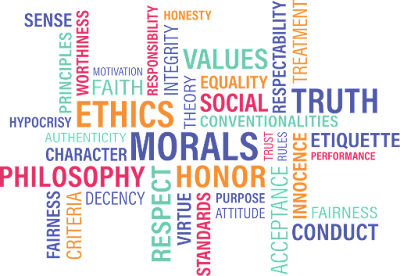Morocco: Language, Etiquette, Greetings, and Customs
Exploring Morocco: Language, Etiquette, Greetings, and Customs
Morocco, a captivating North African country, is known for its diverse culture, rich history, and warm hospitality. As a traveler, understanding the local language and cultural norms is essential to fully immerse yourself in the Moroccan experience. In this article, we will delve into the fascinating aspects of language and etiquette, along with the art of greetings and customs in this enchanting land.
Language in Morocco:
Arabic and Berber are the two
official languages of Morocco, each reflecting the country's unique cultural
tapestry. While Arabic (specifically Moroccan Arabic or Darija) is widely
spoken in cities and towns, Berber is predominantly used in rural regions.
Additionally, French is widely understood and used in business, education, and
tourism, making it a valuable language for travelers.
It is worth noting that English proficiency varies across the country. In major tourist destinations, you are likely to find individuals who speak English, but in more remote areas, basic Arabic or French phrases can be extremely helpful for effective communication.
Etiquette in Morocco:
Morocco has its own set of social
customs and etiquette, deeply rooted in Islamic traditions and hospitality.
Observing these practices not only shows respect for the local culture but also
helps forge genuine connections with Moroccans.
1. Greetings and Politeness:
- When meeting someone for the first time, it is customary to greet them with "As-salamu alaykum," meaning "Peace be upon you." The response is "Wa alaykumu as-salam," which translates to "And upon you, peace."
- Handshakes are the most common form of greeting between men and between women. However, it is best to wait for a Moroccan woman to extend her hand first.
- Avoid prolonged direct eye contact, as it may be seen as impolite or intrusive.
2. Hospitality and Tea Culture:
- Moroccan hospitality is legendary. If invited to someone's home, it is customary to accept graciously and bring a small gift like pastries or fruit as a token of appreciation.
- Moroccan tea, or "atai," is an integral part of the culture. When offered tea, it is polite to accept, and you can show gratitude by sipping it slowly and enjoying the moment.
3. Dress Code:
- While Morocco is relatively liberal, especially in urban areas, dressing modestly is respectful, particularly when visiting religious sites. Both men and women should cover their shoulders and avoid wearing revealing clothing.
4. Public Affection:
- Public displays of affection, such as hugging or kissing, are generally considered inappropriate in Moroccan culture. Reserve such expressions of affection for private settings.
5. Eating Customs:
- When dining with Moroccans, it is common to eat with your right hand, as the left hand is considered unclean. However, in more modern settings, using cutlery is acceptable.
As you journey through Morocco, embracing the local language and practicing cultural etiquette will open doors to meaningful interactions and a deeper appreciation of the country's beauty. The Moroccan people's warmth and genuine kindness will leave a lasting impression, making your travel experiences even more memorable. So, remember to greet with a smile, be respectful of customs, and savor the rich cultural tapestry that Morocco graciously offers to all who visit its enchanting land.
Essential Moroccan Phrases for Travelers: Embrace the Local Culture with Confidence
As you embark on your journey to Morocco, a country rich in history, culture, and hospitality, one of the best ways to connect with locals and immerse yourself in the experience is by using some essential Moroccan phrases. While many Moroccans speak French and English in urban areas, showing an effort to communicate in their native language, Moroccan Arabic (Darija), or Berber will undoubtedly earn you smiles and goodwill. This article presents a selection of useful phrases to help you navigate your way through the bustling markets, engage in conversations, and create unforgettable memories during your Moroccan adventure.
1. Greetings and Courtesies:
- Hello / Hi: Salam
- Peace be upon you (response to greetings): Wa alaikum as-salam
- Welcome: Marhaba
- Good morning: Sabah al-khayr
- Good afternoon: Masaa al-khayr
- Good evening: Msa l'khîr
- Goodbye: Bslama
- Yes: Na'am
- No: Laa
- Please: Min Fadlak (to a male) / Min Fadlik (to a female)
- Thank you: Shukran
- You're welcome: Afwan
2. Basic Expressions:
- How are you? (to a male): Labas 3lik?
- How are you? (to a female): Labas 3lik?
- I'm fine, thanks: Labas, shukran
- What is your name? (to a male): Shno smitek?
- What is your name? (to a female): Shno smitek?
- My name is [Your Name]: Smitee [Your Name]
- Excuse me / Sorry: SmaHli
3. Directions and Transport:
- Where is...? (e.g., the Medina, the bathroom): Fin / Wein (Darija) / Ayin (Berber) ...
- How much is this?: BshHal hada?
- Left: Lbarr (Darija) / Lef (Berber)
- Right: Lmin (Darija) / Lemlil (Berber)
- Straight ahead: Toul
- Stop: Wqef
- Taxi: Taxi
4. Shopping and Bargaining:
- How much does this cost?: Sh7al hada?
- Expensive: Ghali
- Cheap: R7iS
- I want this: Bghit hada
- Can you reduce the price?: Gheddi tnaqqes l'prix?
- No, thank you: La, shukran
5. Food and Dining:
- Water: Ma
- Tea: Atay
- Coffee: Kahwa
- Bread: Khobz
- Delicious: Zwin (Darija) / Lbzar (Berber)
- Bill, please: Addi l'compte, min fadlak (to a male) / min fadlik (to a female)
Mastering a few key phrases in Moroccan Arabic or Berber will enhance your travel experience and foster genuine connections with locals. While language barriers may exist, a sincere effort to communicate in their mother tongue demonstrates respect and appreciation for Moroccan culture. So, venture forth with confidence, using these essential phrases, and embrace the warmth and hospitality that Morocco has to offer. Safe travels!
Share:

